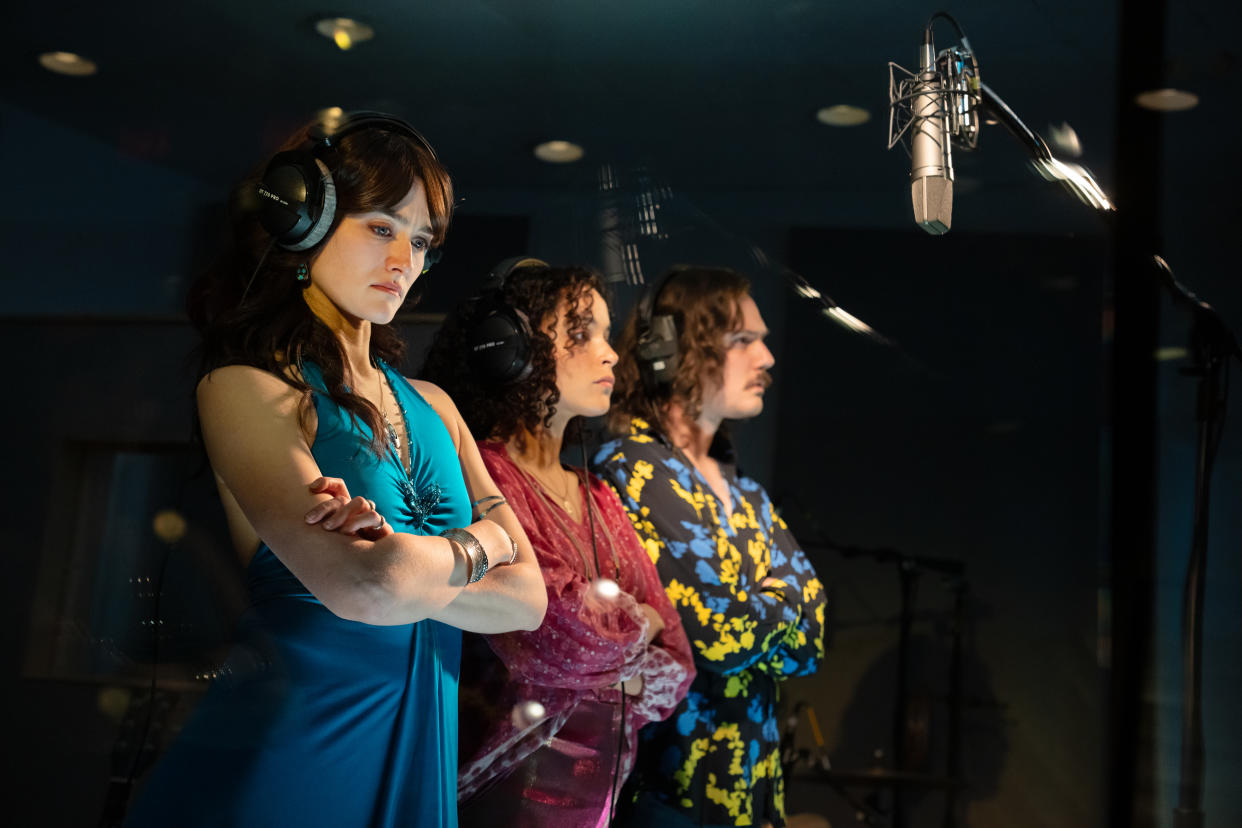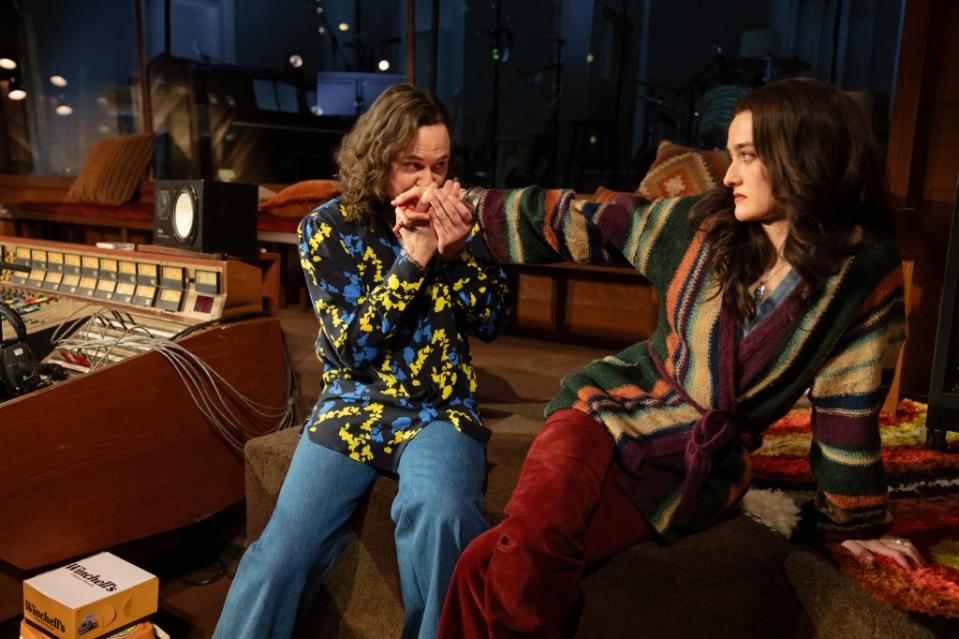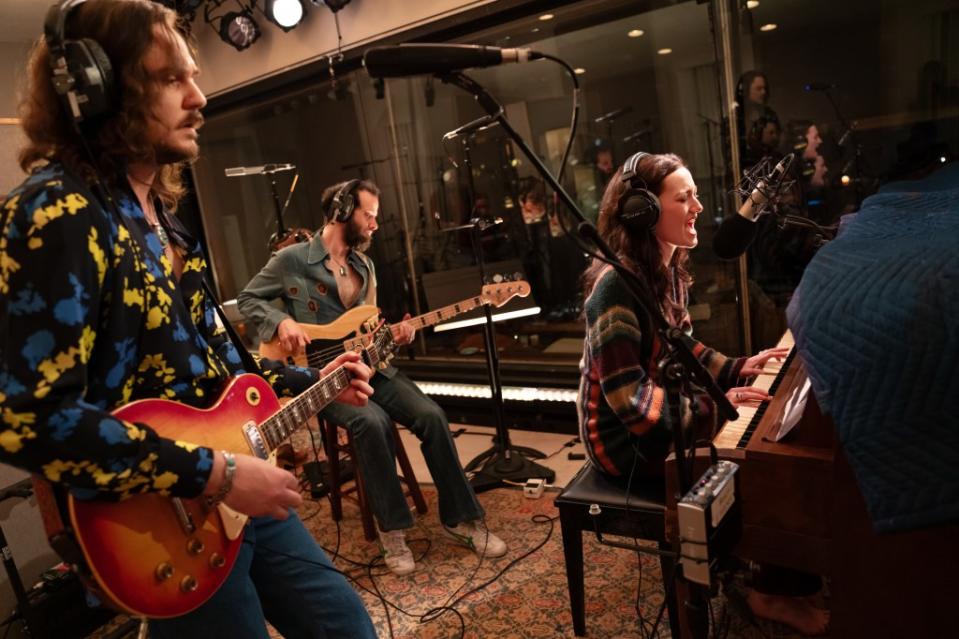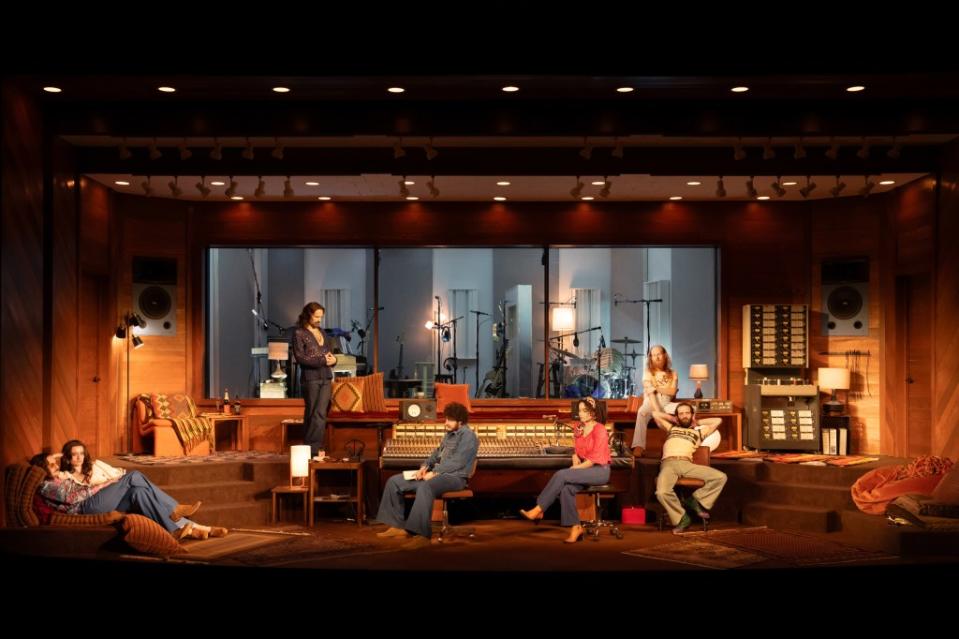‘Stereophonic’ review: Broadway play goes behind the music

Although “Stereophonic” is not a musical, it’s easy to get swept up by the terrific original rock songs that throb through it.
movie review
STEREOPHONIC
Three hours and five minutes, with one intermission. At the John Golden Theatre, 252 West 45th Street.
And as writer David Adjmi’s play, which opened Friday night at the John Golden Theatre, is set during the mid 1970s, Will Butler’s music sounds authentically of that edgier era. Almost eerily so.
The former Arcade Fire member’s impressive jams are melodious and raw; earthy rather than trippy; the stuff of the best cross-country road trips.
Then, at the end, comes a tragedy. The tracks, which we’ve watched be painstakingly rehearsed and recorded by a famous band over the course of a year in two California studios, don’t even make it onto the final album.
It’s an incisive moment in a play that, while not itself perfect, has a keen understanding of what determined artists will do in pursuit of perfection. Sometimes the good must be killed in order to make room for the great — consequences be damned.

And “Stereophonic” is three hours of consequences.
Imploding relationships, volcanic tempers, 4 a.m. work nights and an all-you-can-inhale buffet of drugs and booze are here in this Broadway “Behind The Music.”
The fictitious British-American group — three men and two women — bear an uncanny resemblance to Fleetwood Mac. Rumor has it that the dramedy is inspired by the making of 1975’s “Rumours.”
Could be. Who knows? But those who know nothing about Lindsey Buckingham and Stevie Nicks won’t get lost.

We meet alpha guitarist Peter (Tom Pecinka), the egotist leader, who’s dating singer Diana (Sarah Pidgeon). Oddball bass player Reg (Will Brill) is with keyboardist Holly (Juliana Canfield), who dreams of a calmer life and nice house away from her bandmates. And drummer Simon’s (Chris Stack) family is back in Britain. Uh oh.
The quintet spends 1976 to ’77 making infinitesimal changes to songs, bickering with each other, chatting about nothing, slamming doors, rinse and repeat. Their sound engineers, Grover (Eli Gelb) and Charlie (Andrew R. Butler), are the rare voices of sanity as the project becomes more and more heated and time consuming. The show does, too, for that matter.
Adjmi’s play is long — too long — because he’s attempting to accurately capture, documentary style, the often banal artistic process. Sizable scenes will be spent adjusting drum cymbals or having a singer redo a section over and over again. Reg, while high, has a frivolous speech about houseboats that goes on forever.
That’s all well and good, but those slice-of-life bits don’t always hold the audience’s attention. Some are plain indulgent. Other plays have been more successful at finding profundity in the ho-hum, such as Annie Baker’s “The Flick.”

Still, “Stereophonic,” directed by Daniel Aukin, is undeniably transportive, and it’s a pleasure to be immersed in this creatively robust decade for a while. David Zinn’s neat set is the control room of a recording studio, with a soundproof booth upstage behind glass. It casually evokes the ‘70s without going full-blown “Brady Bunch” kitchen.
The actors, in boots and bellbottoms, lounge around and perch on cushions and carpeted steps in such a comfortable way that there’s not a second of doubt that these folks have spent a year of their lives in this claustrophobic space. They click like a band should — the love and hatred are palpable.
And yet the most fulfilling to character to experience grow is, actually, not a musician at all, but Grover the engineer. Gelb, in subtle but affecting ways, builds the guy’s confidence as he transitions from a nobody to a producer. He’s the play’s heart.
But I was most taken by Pidgeon, who, besides having the elusive rock singing quality in which grit meets tenderness, brings an appealing mystery and longing to her talented character. Diana is obviously the group’s star, but charmingly doesn’t seem to know it — until the extraordinary happens. Pecinka’s Peter, who gets angrier and angrier as time ticks by, resents his on-again-off-again girlfriend’s gifts.
If you look closely, you might just see Stevie Nicks and Lindsey Buckingham’s reflections in the snow-covered hills.
